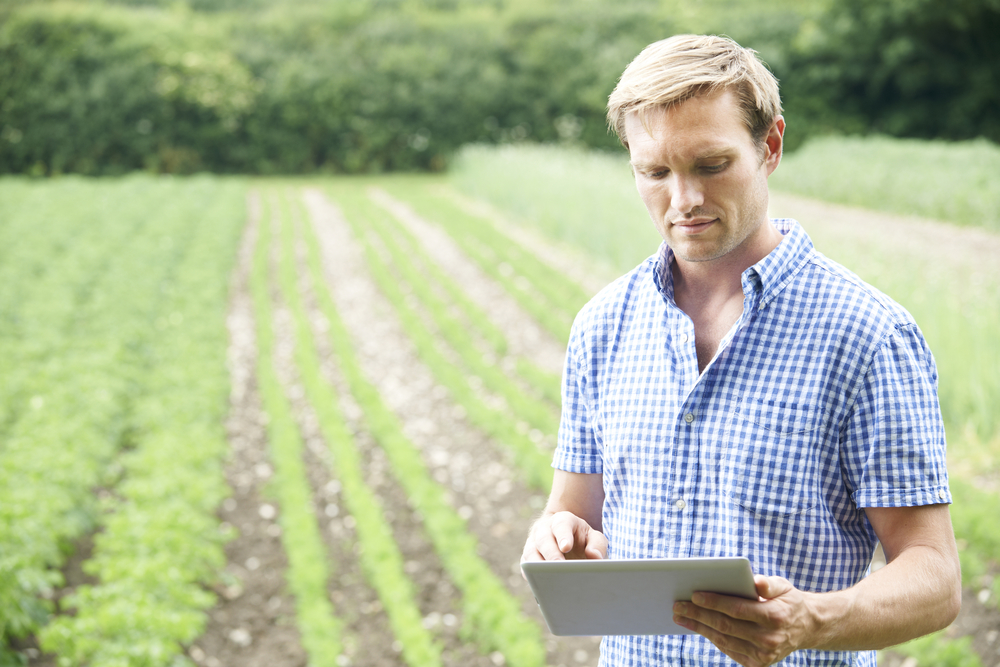Against the backdrop of climate change, resource depletion, and escalating food demand, the urgency for a transformative shift toward sustainable farming practices has never been more apparent.
Agricultural activities are a significant contributor to global greenhouse gas emissions, deforestation, biodiversity loss, and freshwater use, and with the global population projected to reach almost 10 billion by 2050, the ensuing increase in food demand poses an unsustainable strain on current food systems.
Yet, the food and agriculture sector receives a relatively small fraction of climate finance compared to industries such as renewable energy and transport. This is a major problem, say Lionel Artusio-Payot and Fabio Sofia, co-founders of Zebra Impact Ventures, but it’s one that sustainable finance can address with growing awareness and a shift in strategy. They are partnering with Swiss bank Mirabaud to support financing sustainable paths to solving food shortages through promising investment opportunities.
“Current agricultural practices require profound transformation. This is creating unprecedented opportunities across the global food value chain,” Artusio-Payot and Sofia wrote in a recent article, citing recent shortages of commonly used items like pasta and the rising cost of food in an inflationary economy.
“After years of operating on outdated technology and production methods, the global agrifood system — which produces what’s on the world’s plate — has reached a breaking point.”
Agriculture and the Environment
According to the Food and Agriculture Organization of the United Nations, agrifood systems account for one-third of greenhouse gas emissions.
In a concerning feedback loop, these emissions contribute to climate change, which adversely affects agricultural productivity globally. The more we rely on environmentally harmful agriculture practices, the harder it is to reach desired levels of agricultural productivity.
To make matters worse, agriculture is the primary driver of deforestation, particularly in tropical regions, where vast forest areas are cleared for cropland and pasture. This deforestation contributes to biodiversity loss, with agriculture estimated to affect 70% of predicted terrestrial biodiversity loss. It also creates another devastating feedback loop, eliminating trees that play an invaluable role in removing CO2 from the atmosphere and therefore accelerating climate change.
Water usage within the agriculture sector is also substantial, representing about 70% of global freshwater withdrawals. This extensive water use raises concerns in regions already experiencing water scarcity. The sector’s reliance on chemical inputs such as fertilizers and pesticides, alongside outdated production methods, further exacerbates environmental degradation. These practices lead to soil erosion, decreased soil fertility, and water pollution, undermining the long-term sustainability of agricultural systems.
As part of their role partnering with Mirabaud on the bank’s regenerative growth strategy, Artusio-Payot and Sofia are looking for ways to finance sustainable agricultural practices to mitigate these environmental impacts. Approaches such as crop rotation, organic farming, agroforestry, and precision agriculture technologies offer pathways to improve productivity while conserving resources.
Artusio-Payot and Sofia are enthusiastic about the potential of these regenerative agriculture plans, which, they explain, are “systems of producing food that don’t just limit harm, but actively restore nature and reverse environmental damage. More importantly, regenerative practices offer a way to bolster food production while meeting climate goals through carbon sequestration and responding to the biodiversity targets set out in the Global Biodiversity Framework agreed at the COP15 in 2022.”
In order to gain widespread traction, these sustainable practices need financial support, not just from governments, but from private sector firms like Mirabaud. Given the deficiencies already starting to show in less sustainable methods and a global focus on finding ways to produce food more sustainably, they could represent a valuable investment in the future of agriculture. The agrifood tech innovation market has grown by roughly 600% since 2012 and is forecast to reach $700 billion by 2030.
Sustainable Finance and Mirabaud Bank’s Strategy
The goal of Mirabaud Bank’s engagement in sustainable finance, particularly in the agricultural sector, is to support global food security while promoting environmental sustainability with viable investments. The bank targets investment opportunities that provide economic returns and generate environmental and social benefits.
Some potential targets include innovations in precision farming, renewable energy in agriculture, water-efficient irrigation systems, and sustainable aquaculture. These investments are crucial for reducing emissions, conserving biodiversity, and making efficient use of water resources, but they’re also potential growth sectors. For instance, the global market for precision farming, which involves using artificial intelligence and drones to utilize agricultural resources more efficiently, is expected to grow at a compound annual growth rate of 12.7%, reaching roughly $12.8 billion by 2027.
“The amount of investment needed to transform our food systems is estimated by the Good Food Finance Network to total $300 billion to $350 billion a year from now until 2030,” wrote Artusio-Payot and Sofia. “This is a huge standalone figure, but for context, it seems relatively modest in comparison to the amount pledged to the COVID-19 recovery.
“More importantly, it is dwarfed by the enormous potential business opportunities we expect to see in sustainable, healthy, equitable food investments and the societal value that these investments can unleash.”
